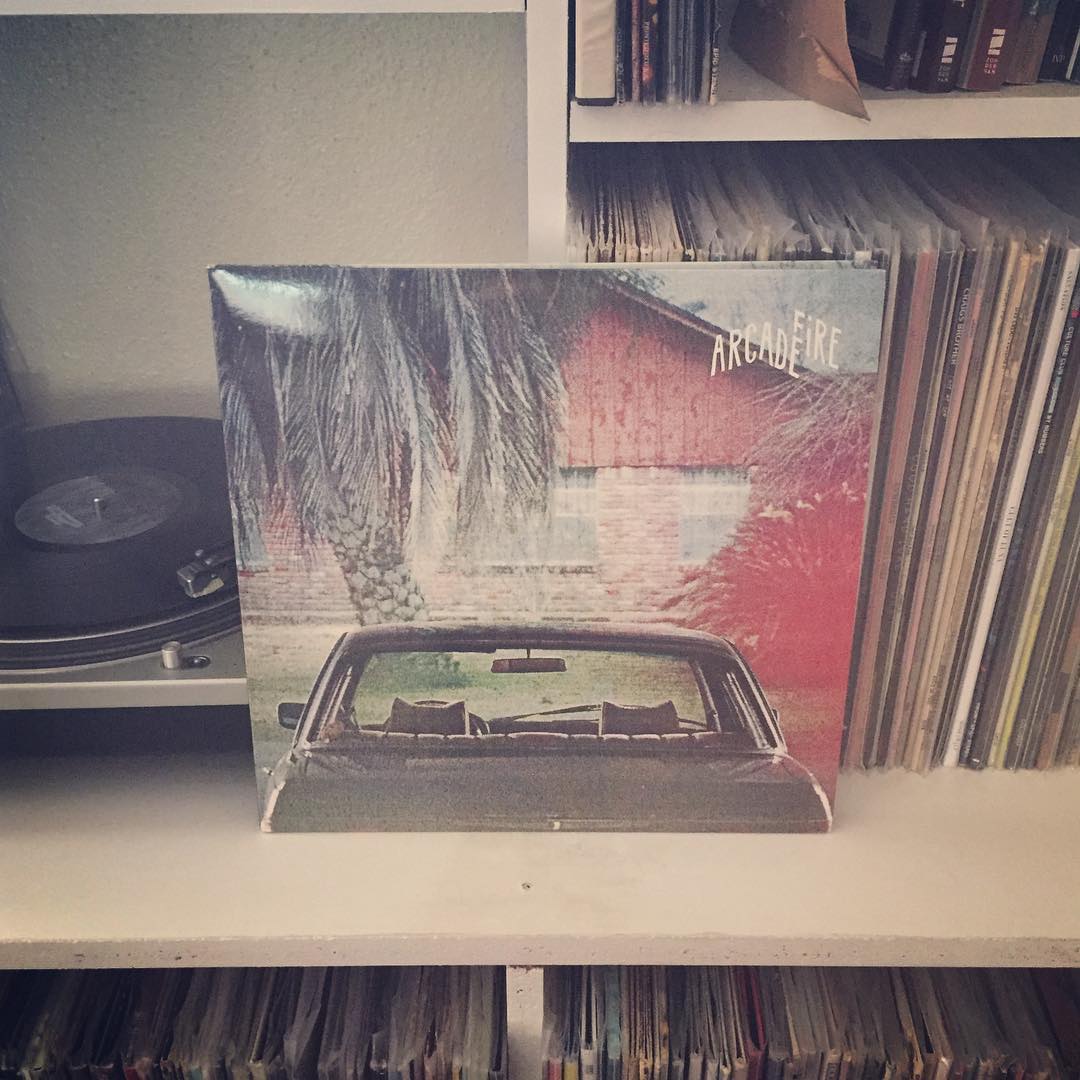 I’m going to say this only once, but I don’t want that to downplay its significance at all.
I’m going to say this only once, but I don’t want that to downplay its significance at all.
This album won a bleeding Grammy.
And not for Rock Album, or Alternative Album, or Best “New” Artist or some crap like that.
Album of the Year.
Out of all of the albums. All of them. This beat Lady Gaga and Katy Perry. In today’s music scene.
Album of the Year.
Accolades aside, is it really that good? Personally, I was underwhelmed on my first few listens. It doesn’t stretch very far past the boundaries set in Neon Bible and at times seems a little too concept-heavy (drinking game: take a shot every time he makes a cynical observation about “the kids.” Try to stay conscious past the first disc).
The youthful cynicism of adulthood that wriggled through the past two records is replaced with an exaggerated urban vs. suburban dichotomy. It doesn’t quite fit the narrative of its predecessors–rather, it reads like an alternate history of the same narrating characters, but with less that tears at your heart.
Musically, it’s almost more of the same–indie rock anthems with strings and woodwinds playing along with some downtempo folk songs thrown in for good measure, although the frantic baroque-shoegaze of “Empty Room” is undeniably enjoyable. But The Suburbs lacks the immediacy of Neon Bible or Funeral, even with a less nuanced theme and more kick-stomping singalong anthems.
But a careful listen will reveal that, despite the heavy-handedness, The Suburbs is actually an incredibly subtle album. The themes of adolescence v. adulthood that ran through the first two albums still poke up their heads between criticisms of the too-cool kids, laments for dying cities, and passing remarks about being “kids in buses longing to be free.”
The narrator’s mood has changed too–he’s more cynical, more alone, like the friend sitting in the passenger seat of the car he drove through the first two albums has moved to a different city and stopped calling. And while the music itself doesn’t seem to offer much more than Neon Bible, the songcraft is more refined. Instruments are never used for novelty (barring the raucous string section that opens “Empy Room”) but rather for mood, like the staccato minor key piano that leads the asymmetrical beat and barking guitars of “We Used To Wait” into the impending war between parts of town he keeps talking about (they run the piano in the end groove on the vinyl, looping it Beatles style), or the moody synthesizer that carries “Sprawl II (Mountains Beyond Mountains)”, which is one of the most purely enjoyable (yet heartbreaking) songs on here.
Sequence wise, there’s a real sense of urgency towards the end that brings the panic of the narrator to the immediate attention of the listener, and it being an Arcade Fire album, when the tension breaks, there is no joy in Mudville–the reprise of the opening track that closes the album is even more hopeless than it was at the beginning of the record.
To answer the original question: yes. It’s really that good. And while the first several listens washed over me without making too much of an impression, after a while I noticed that it was dragging me with it. And that’s where the legacy of Arcade Fire is a double-edged sword–they’re excellence is so consistent that the listener can be fooled into believing that a great album (like The Suburbs) isn’t that impressive.